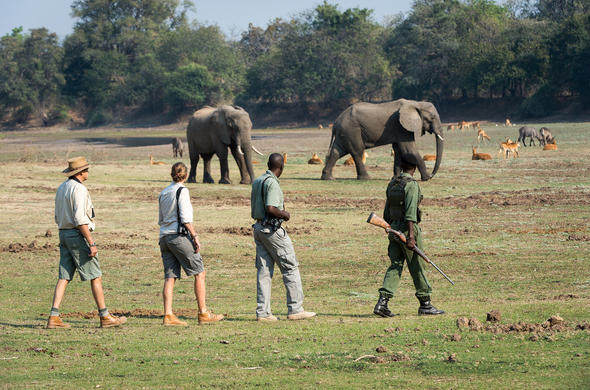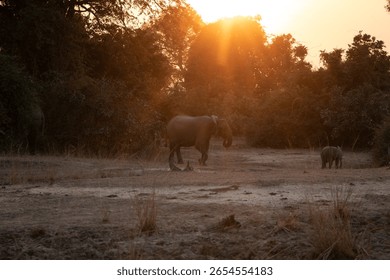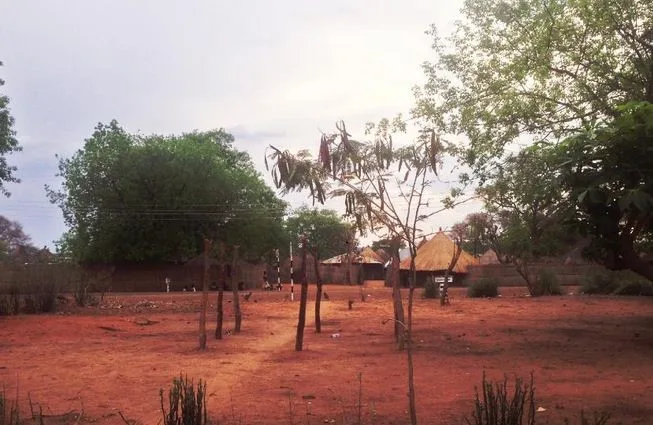South Luangwa: Where Wildlife Thrives and Communities Flourish

Landing at Mfuwe Airport is an experience unlike any other. The air, thick with the scent of the African bush, wraps around you like a warm embrace. As the tiny plane touched down, a palpable sense of anticipation filled me, knowing I was about to embark on a journey into one of Africa’s best-kept secrets: South Luangwa National Park in Zambia. My mission? To witness firsthand the park's dedication to eco-tourism and its transformative impact on local communities. Little did I know, this trip would change my perspective on responsible travel forever.
The drive to Thornicroft Lodge was a mesmerizing introduction to South Luangwa. Golden light filtered through the iconic miombo woodland, painting the landscape in hues of amber and ochre. The sounds of the bush – the chirping of unseen birds, the rustling of leaves – created a symphony that was both calming and exhilarating. Thornicroft Lodge, nestled on the banks of the Luangwa River, promised a blend of comfort and connection with nature, a perfect base for my exploration. It also distinguished itself with a commitment to locally sourced ingredients, something I greatly appreciated.
Walking with Joseph: A Deeper Connection to the Land
One of the highlights of my trip was a walking safari led by Joseph, a certified guide from the Kawaza Village tourism initiative. This wasn't just a walk in the bush; it was an immersive experience, a masterclass in understanding the intricate web of life that thrives in South Luangwa. Joseph's knowledge was encyclopedic – he could identify every plant, every animal track, every bird call. But more than that, his passion for conservation was infectious.
He explained how the Kawaza Village tourism initiative has revolutionized his community. By providing employment and generating income, tourism has created a sustainable alternative to poaching and deforestation. Families now have access to better education and healthcare, and the community is empowered to protect its natural heritage. Walking alongside Joseph, I witnessed firsthand the tangible benefits of responsible tourism.
The landscape itself was breathtaking. We followed the contours of the Luangwa River, marveling at the oxbow lagoons shimmering under the African sun. Joseph explained how these lagoons were formed over centuries by the river's changing course, creating vital water sources for wildlife, especially during the dry season. We spotted hippos wallowing in the muddy waters and crocodiles basking on the sun-drenched banks.
And then, there it was – a Thornicroft's giraffe, a species endemic to the area. Its distinct coat patterns, a mosaic of earthy browns and creams, were unlike any giraffe I had ever seen. It was a truly special moment, a reminder of the unique biodiversity that South Luangwa protects.
Capturing the Wild: A Photographic Safari
No trip to South Luangwa would be complete without a photographic safari. Armed with my Olympus OM-D E-M1 Mark III camera and a Zuiko 40-150mm f/2.8 lens, I set out to capture the raw beauty of the park. The low light of dawn and dusk presented unique challenges, but also incredible opportunities. I focused on achieving sharp images with a shallow depth of field, isolating my subjects against the lush background.

One of my favorite subjects was the carmine bee-eater. These vibrant birds, with their iridescent plumage, are a photographer's dream. By using burst mode and carefully adjusting my aperture, I was able to capture the bee-eater in flight, its colors exploding against the green foliage. I found the same gear to be just as valuable when documenting and engaging with community members in a respectful and unobtrusive way. A longer lens allowed for candids while still allowing me to interact respectfully.
Tribal Textiles: Empowering Women Through Art
A visit to the Tribal Textiles workshop was an eye-opening experience. The vibrant colors and intricate designs of the textiles were a testament to the talent and creativity of the local artisans. The workshop itself was a haven of creativity, with natural light streaming through large windows, illuminating the women at work.
I had the opportunity to interview Mable, one of the artisans, who shared her story of how the workshop has empowered her and other women in the community. Before Tribal Textiles, Mable struggled to provide for her family. Now, with a steady income and valuable skills, she is able to send her children to school and build a better future for herself. The workshop is more than just a place of work; it's a community, a support system, and a source of pride.
Sunset on the Luangwa River: A Moment of Pure Magic
A boat safari on the Luangwa River at sunset was an experience I will never forget. The vibrant colors of the sky – fiery oranges, deep purples, and soft pinks – reflected on the water, creating a breathtaking spectacle. Silhouettes of elephants drinking at the riverbank added to the magic. As the sun dipped below the horizon, a profound sense of peacefulness washed over me. It was a moment of pure, unadulterated beauty.
A Taste of Zambia: Nshima and Imbalala
No cultural immersion is complete without trying the local cuisine. I had the privilege of visiting a local family in Kawaza Village and learning how to prepare Nshima, a staple food made from maize flour. The warmth of their hospitality was overwhelming. They welcomed me into their home and patiently guided me through the cooking process. Sharing a meal of Nshima with them was a deeply meaningful experience, a connection forged through food and shared laughter.
Then came the moment of truth: trying Imbalala, or roasted caterpillars. Prepared by roasting or boiling, sometimes with tomato and onion, these protein-rich snacks are a traditional delicacy. While the texture was a bit challenging at first, I appreciated the cultural significance of this unique dish. It was a reminder that food is more than just sustenance; it's a reflection of culture, history, and adaptation to the environment.

The Transformative Power of Responsible Travel
My journey to South Luangwa was more than just a safari; it was a lesson in the transformative power of responsible travel. Tourism in South Luangwa has not only contributed to wildlife conservation but has also empowered local communities, creating a win-win situation for both people and nature.
You can support sustainable tourism in South Luangwa by:
- Donating to Conservation South Luangwa.
- Booking a tour with the Kawaza Village tourism initiative.
- Choosing lodges that prioritize community engagement and environmental sustainability, such as Thornicroft Lodge.
Let's all consider how our travel choices can make a positive impact on the world, leaving both the destination and the traveler enriched. South Luangwa is proof that it's possible to have an incredible wildlife experience while simultaneously supporting the people who call this place home. It's a journey that will stay with me forever, a reminder that travel can be a force for good.